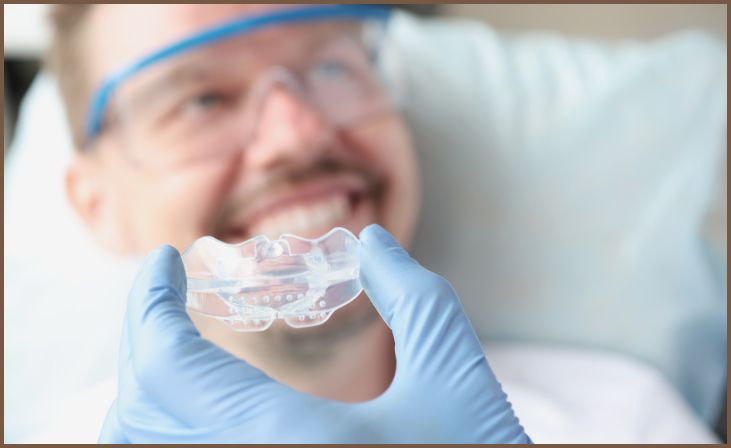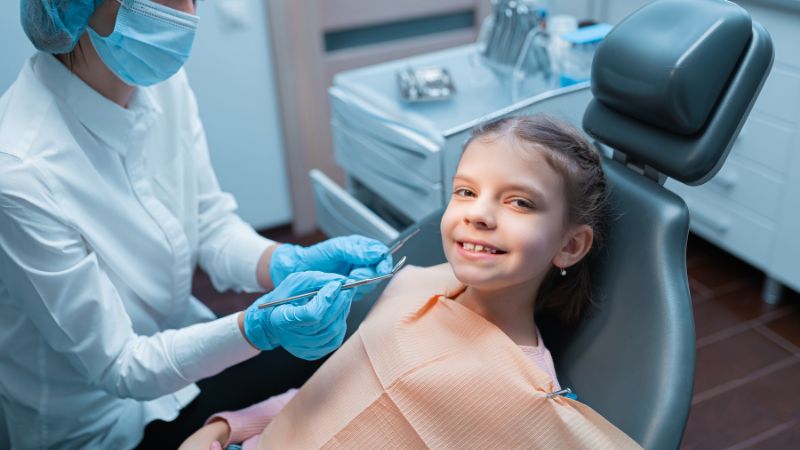Welcome to our comprehensive guide on dental wellness for every age, where we’ll explore valuable tips and insights to help children, adults, and seniors maintain optimal oral health throughout their lives. Dental wellness is essential at every stage of life, from childhood to old age, as it plays a significant role in overall well-being and quality of life.
In this guide, we’ll delve into age-specific dental care recommendations, addressing common concerns and providing practical advice for maintaining healthy teeth and gums. Whether you’re a parent looking to instill good oral hygiene habits in your child, an adult seeking to prevent dental issues, or a senior navigating age-related dental challenges, we’ve got you covered.
Dental Wellness for Every Age: Tips for Children, Adults, and Seniors
Importance of Dental Wellness Across Every Age

Dental wellness is essential at every stage of life, from childhood through adulthood to the senior years. Good oral hygiene habits and regular dental care are crucial for maintaining healthy teeth and gums, preventing dental problems, and preserving overall health and well-being. Each age group faces unique challenges and considerations when it comes to dental wellness, but the fundamental principles of oral health remain the same. By prioritizing dental wellness and adopting healthy habits from a young age, individuals can enjoy a lifetime of strong, beautiful smiles and improved quality of life. Dental Wellness for Every Age.
Also Read: The Link Between Oral Health and Overall Wellness: Insights from Experts
Dental Wellness Tips for Children
For children, establishing good oral hygiene habits early on is essential for promoting healthy teeth and gums and preventing dental problems later in life. Parents should begin cleaning their child’s gums with a soft, damp cloth or infant toothbrush as soon as their first teeth erupt. As more teeth come in, parents can introduce a small amount of fluoride toothpaste and gently brush their child’s teeth twice a day. Encourage children to develop good oral hygiene habits by making brushing and flossing fun and rewarding. Limit sugary snacks and drinks, and encourage healthy eating habits to support overall dental wellness.
Dental Wellness Tips for Adults

Adults should continue to prioritize oral hygiene and regular dental care to maintain optimal dental wellness throughout their lives. Brush teeth at least twice a day with fluoride toothpaste and floss daily to remove plaque and food particles from between teeth and along the gumline. Visit the dentist for regular checkups and cleanings every six months, or as recommended by your dentist. Be proactive about addressing any dental issues or concerns, such as tooth decay, gum disease, or tooth sensitivity, to prevent them from worsening. Maintain a balanced diet rich in fruits, vegetables, and lean proteins, and limit sugary and acidic foods and drinks that can contribute to tooth decay and erosion.
Dental Wellness Tips for Seniors
Seniors face unique challenges when it comes to dental wellness, including age-related changes in oral health and the increased risk of dental problems such as tooth decay, gum disease, and tooth loss. Maintain good oral hygiene habits, including brushing and flossing daily, and using an antimicrobial mouthwash to reduce plaque and bacteria. Visit the dentist regularly for comprehensive oral exams and cleanings, and discuss any concerns or changes in oral health with your dentist. Be proactive about addressing dry mouth, which can increase the risk of tooth decay and gum disease, by staying hydrated and using saliva substitutes or moisturizing mouth rinses as needed.
Maintain Healthy Habits

Regardless of age, maintaining healthy habits is key to preserving dental wellness and overall health. In addition to brushing and flossing, consider using fluoride toothpaste and mouthwash to strengthen tooth enamel and protect against decay. Eat a balanced diet rich in vitamins and minerals that support dental health, including calcium, vitamin D, and vitamin C. Avoid tobacco use, which increases the risk of gum disease, oral cancer, and other serious health problems. Stay hydrated by drinking plenty of water throughout the day, which helps wash away food particles and bacteria that can lead to tooth decay and bad breath.
Seek Professional Dental Care
Seeking professional dental care is essential for maintaining dental wellness at every age. Dentists and dental hygienists are trained to assess oral health, detect early signs of dental problems, and provide preventive care and treatments to protect teeth and gums. Schedule regular dental checkups and cleanings to ensure that any potential issues are addressed promptly before they worsen. Be proactive about seeking treatment for dental problems such as cavities, gum disease, or tooth pain, as delaying treatment can lead to more extensive and costly dental procedures in the future. By prioritizing professional dental care, individuals can maintain optimal dental wellness and enjoy a lifetime of healthy smiles.
Practice Proper Oral Hygiene
Proper oral hygiene is essential for maintaining dental wellness at every age. Brush your teeth at least twice a day for two minutes each time, using fluoride toothpaste and a soft-bristled toothbrush. Make sure to brush the inside, outside, chewing surfaces, back, tongue, and roof of the mouth in addition to your teeth. Additionally, floss between your teeth daily to remove plaque and food particles that can lead to tooth decay and gum disease. Proper oral hygiene helps prevent dental problems and promotes overall oral health and well-being.
Use Protective Mouthguards

Using protective mouthguards is especially important for individuals who participate in sports or recreational activities that carry a risk of dental injury. Mouthguards help protect teeth from impact and trauma during contact sports such as football, hockey, and basketball, as well as activities like skateboarding and biking. Custom-fitted mouthguards, made by a dentist, offer the best protection and comfort, but over-the-counter options are also available. Wearing a mouthguard can help prevent chipped or broken teeth, tooth loss, and other dental injuries, preserving dental wellness for years to come.
Avoid Harmful Habits
Avoiding harmful habits is crucial for maintaining dental wellness and preventing dental problems. Avoid chewing on hard objects such as ice, pens, or fingernails, as this can damage tooth enamel and lead to cracks, chips, or fractures. Similarly, avoid using teeth as tools to open packages or bottles, as this can also cause damage to teeth and increase the risk of injury. Eat fewer sweet and acidic foods and beverages as these can exacerbate tooth erosion and decay. Finally, avoid tobacco use in any form, as it increases the risk of gum disease, oral cancer, and other serious health problems.
Stay Informed and Educated

Staying informed and educated about oral health and dental wellness is essential for making informed decisions about your dental care. Stay up-to-date on the latest dental research, technologies, and treatments by reading reputable dental publications, attending continuing education courses, and following trusted dental professionals and organizations online. Ask your dentist or dental hygienist about any questions or concerns you may have about your oral health and dental wellness. By staying informed and educated, you can take an active role in maintaining your dental wellness and making informed decisions about your dental care.
Conclusion
In conclusion, dental wellness is a lifelong journey that requires attention and care at every stage of life. By following age-appropriate dental care tips and prioritizing regular dental visits, individuals of all ages can enjoy healthy teeth and gums for years to come. Whether you’re guiding your child through their first dental experiences, maintaining oral health as an adult, or navigating dental challenges in your senior years, remember that proactive care and prevention are key to preserving your smile and overall well-being. Embrace dental wellness at every age, and reap the rewards of a lifetime of healthy smiles.
FAQs
What are some essential dental care tips for children?
Encourage children to brush twice daily, floss regularly, limit sugary snacks, and visit the dentist regularly for check-ups and cleanings to promote good oral health habits from a young age.
How does dental care change as we age?
As we age, we may experience changes in oral health such as gum recession, dry mouth, and tooth decay. Seniors should focus on regular dental visits, proper oral hygiene, and addressing age-related dental issues promptly to maintain oral health and overall well-being.
